 Petzlover
Petzlover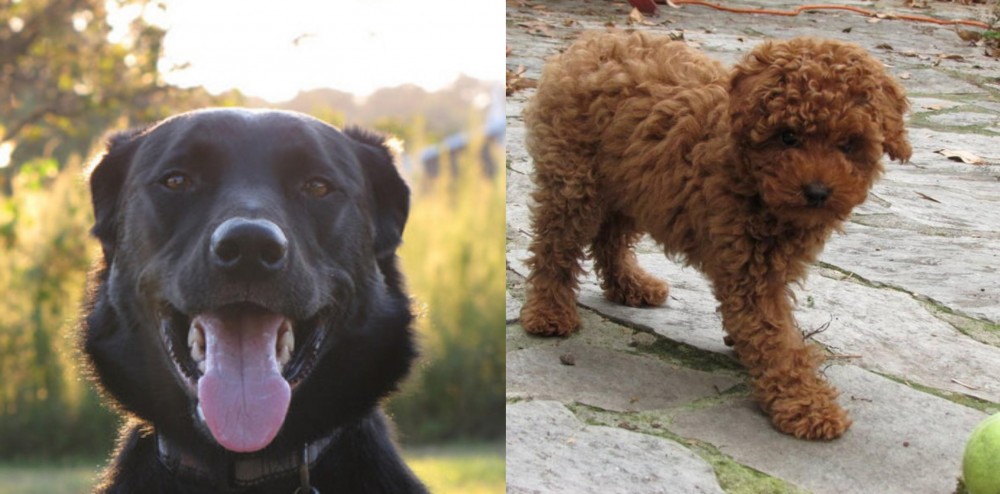 Borador is originated from United States but Toy Poodle is originated from France. Borador may grow 29 cm / 12 inches higher than Toy Poodle. Borador may weigh 21 kg / 47 pounds more than Toy Poodle. Both Borador and Toy Poodle has same life span. Borador may have more litter size than Toy Poodle. Both Borador and Toy Poodle requires Moderate Maintenance.
Borador is originated from United States but Toy Poodle is originated from France. Borador may grow 29 cm / 12 inches higher than Toy Poodle. Borador may weigh 21 kg / 47 pounds more than Toy Poodle. Both Borador and Toy Poodle has same life span. Borador may have more litter size than Toy Poodle. Both Borador and Toy Poodle requires Moderate Maintenance.
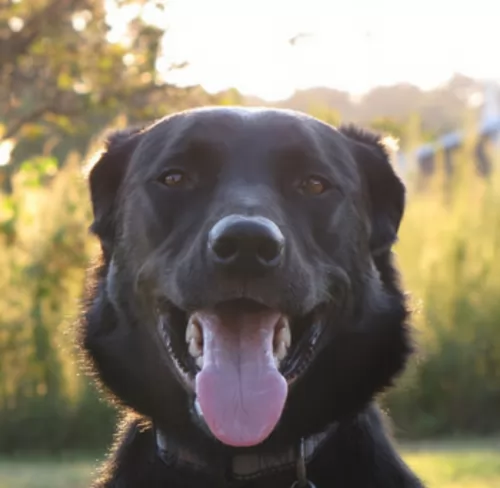 Hybrid breeds have become popular in the last decade or so. The Borador, hailing from Northern America, is one of these popular crossbreeds between two very popular dog breeds - the Border Collie and the Labrador Retriever. Between the two dog breeds, you get extraordinary intelligence, energy and a wonderful temperament.
Hybrid breeds have become popular in the last decade or so. The Borador, hailing from Northern America, is one of these popular crossbreeds between two very popular dog breeds - the Border Collie and the Labrador Retriever. Between the two dog breeds, you get extraordinary intelligence, energy and a wonderful temperament.
You first started hearing about this dog breed in the early 21st century. However each of the two breeds brought together to produce the Borador have got reasonable lengthy histories.
 More and more people are opting not to clip their Poodles ith those ridiculous hair cuts with pom poms. Clipped properly, he can be just as cute as any other dog.
More and more people are opting not to clip their Poodles ith those ridiculous hair cuts with pom poms. Clipped properly, he can be just as cute as any other dog.
It is thought that the Toy Poodle hails from France, with the standard poodle having originated in Germany. The first poodles were used as herders so they’re not just useless dogs with silly pom-pom haircuts.
Some rough-coated water dogs are believed to be ancestors of the Poodle. It was in the 19th century that these dogs became show dogs. Their popularity died out in the 1920s, but it has once again become a popular dog.
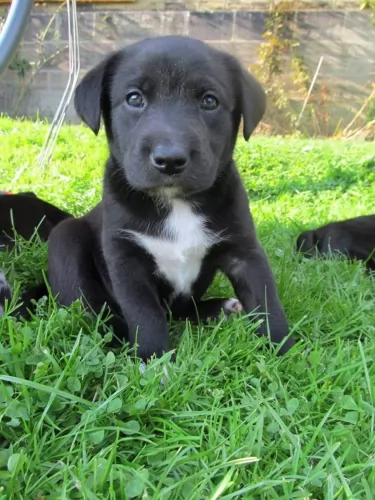 The Borador is a medium to large sized working dog which is well well-proportioned and muscular. His size can’t be carved in stone, but generally he will be in size from 40 – 57cm and weight in the region of 18 and 26 kg. His coat can vary significantly, leaning more towards one particular breed than the other. So the coat can be short and smooth or long and wavy or straight.
The Borador is a medium to large sized working dog which is well well-proportioned and muscular. His size can’t be carved in stone, but generally he will be in size from 40 – 57cm and weight in the region of 18 and 26 kg. His coat can vary significantly, leaning more towards one particular breed than the other. So the coat can be short and smooth or long and wavy or straight.
The Borador essentially has medium-sized ears which are floppy and the tail is medium-length. Sometimes the Borador will have the black and white coat of the Border Collie or he could have a brownish/beige colour from a golden Labrador.
When your energetic Borador is trained and socialized, he becomes a great family member and he gets on well with children and other pets.You’ll find that he often has the sweet, amicable temperament of the Labrador while having the sharp, alert intellect of the Border Collie.
Most Boradors are also good watchdogs and will bark at strangers, but because they are so amicable, from barking, they can quickly become a stranger’s friend.
 Toy Poodles stand between 24 to 28 cm in height and weigh in the region of 2 to 5kg. Poodles are light-shedding dogs and are thought to be hypo-allergenic. If you have an allergy, a Toy Poodle can e a great dog for you.
Toy Poodles stand between 24 to 28 cm in height and weigh in the region of 2 to 5kg. Poodles are light-shedding dogs and are thought to be hypo-allergenic. If you have an allergy, a Toy Poodle can e a great dog for you.
The crip, curly coat comes in a number of colors – cream, apricot, brown, chocolate, and black and he can be clipped if you find that he is too high maintenance. If the hair is allowed to grow it can become very matted and turn into dreadlocks.
Many Toy Poodle owners find this very difficult to maintain and opt to have the dog’s hair clipped. The poodle has medium-length floppy ears. Docking of the tail is important if you want to keep the distinctive look of your poodle. Fortunately, docking is still permitted in the USA and this is best done when the puppy is very young.
Toy Poodles are intelligent dogs and are capable of learning a whole lot of commands and tricks. They’re also excellent athletes, being lively and energetic.
Being lively and alert, the Toy Poodle can be a good watchdog too, barking sharply at intruders. The Toy Poodle is very social and won’t take kindly to being left alone for hours.
Then again, he is gentle and sensitive and won’t do well with undisciplined children and their shrill screams. They are definitely dogs that want peace and harmony. And having him trained and socialized will get you a well mannered, obedient dog. He is small enough to adapt to life in the city or the countryside.
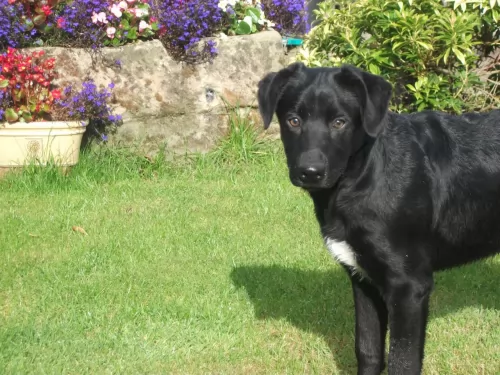 The Borador is an intelligent dog that can be trained. He is a sociable dog and is friendly to all members of his human family, willing to extend a paw of friendship to strangers as well.
The Borador is an intelligent dog that can be trained. He is a sociable dog and is friendly to all members of his human family, willing to extend a paw of friendship to strangers as well.
The Borador is also a friend of children and other pets. This combination of breeds is very energetic and you can’t just leave him for days on end in the backyard. He will need exercise and walks as well as ball games. When you become involved in his games, you tighten the bond between you and this is what this social, outgoing dog loves.
The Borador is going to make a wonderful pet because he is a mix of two very popular dog breeds. Give him all he deserves as a member of your family and you’ll have the perfect friend and companion for life.
 This dog breed is very loyal to its family. It doesn't do well when left for hours on its own.
This dog breed is very loyal to its family. It doesn't do well when left for hours on its own.
Energetic and lively, you’ll find your Toy Poodle such a pleasure to have around. He is very intelligent too, so with training and socialization he becomes a super little pet.
Playful and social, he is like a small ray of sunshine that comes into your home and your heart.
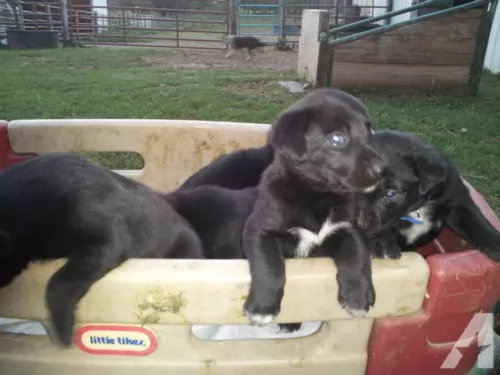 You won’t find serious health problems with your Boradors, as he is a robust breed. Nonetheless, there are some ailments that as a dog owner, you need to be aware of for your Borador.
You won’t find serious health problems with your Boradors, as he is a robust breed. Nonetheless, there are some ailments that as a dog owner, you need to be aware of for your Borador.
Skin ailments – you don’t want to see your dog scratching or licking continuously so you want to be aware of things like parasites and allergies. Skin diseases can be debilitating for a dog and can even require lifelong treatments. Yes, corticosteroids can help with itchy rashes, but the best move is to try and avoid skin ailments by ensuring a nutritious diet rich in minerals and vitamins and which includes some raw meat.
Always be checking your pet for skin problems such as ringworm, caused by a fungus and found on your dog and which appear as scaly patches and hair loss.
Hip Dysplasia – an inherited problem with the hip joints. No-one can predict when hip dysplasia settles in, but it can be as early as 4 months of age.Your dog shows signs of stiffness and may not be his energetic self. Some dog owners want to see certificates first that the parents of puppies have been hip-cleared before they buy a puppy.
 Good food and exercise keep the Toy Poodle as healthy as possible, but like other dogs, the Toy Poodle can also get sick. Cancer, bloat, ear infections, and obesity are common dog ailments.
Good food and exercise keep the Toy Poodle as healthy as possible, but like other dogs, the Toy Poodle can also get sick. Cancer, bloat, ear infections, and obesity are common dog ailments.
Too many dog owners don’t realize the importance of healthy teeth. You need to look into the mouth of your pet regularly to make sure there are no rotting teeth. These problematic teeth can jeopardize the health of your pet.
Infection of teeth and gums can cause a host of other problems such as kidney and heart disease.
Check your Toy Poodle for parasites – fleas, ticks, worms as these can take a toll on your pet’s health. Your pet can become lethargic and the coat becomes listless, thin and dull. Your pet will also lose weight. Speak to your vet about treatments that can prevent these infestations.
 The Borador may have inherited the moderate shedder characteristics of the Border Collie or the more intense shedding of the Labrador Retriever. He will require a good brush at least twice a week to ensure you remove loose hairs so as to keep his coat shiny and healthy. Check your dogs ears too for yeast infections.
The Borador may have inherited the moderate shedder characteristics of the Border Collie or the more intense shedding of the Labrador Retriever. He will require a good brush at least twice a week to ensure you remove loose hairs so as to keep his coat shiny and healthy. Check your dogs ears too for yeast infections.
Puppies and young Boradors are full of energy and they will require a diet that has an excellent protein content. If you’re unsure about how to feed your Borador, speak to your vet as some dogs need more calories depending on their level of activity.
Certainly if your dog has allergies, you may have to look for a special diet but otherwise a top brand commercial dog food can be a good choice if you include some home prepared food such as rice, vegetables and meat. It is important to give your dog some raw meat every now and then as well. Always have a bowl of cool, fresh water available for your pet 24/7.
 Make sure to exercise your Toy Poodle every day. If you’re lucky to have a garden, play ball games with him, play hide and seek and take him for walks.
Make sure to exercise your Toy Poodle every day. If you’re lucky to have a garden, play ball games with him, play hide and seek and take him for walks.
Brush your Toy Poodle twice a week. His curly coat can become a source of concern for you and then you can have his coat clipped short.
Provide your pet with training and socialization and get him used to walking on a leash.
Take your Toy Poodle for regular visits to the vet. There are some serious canine diseases that can kill your pet.
Provide your pet with a nice dry, peaceful sleeping area. He needs his own water and food bowls. Wash these regularly.
Provide your Toy Poodle with the best dog food there is. Try and go for natural foods free from colorants and fillers. Try and also give him some home-made food such as boiled chicken, brown rice, sweet potatoes, and spinach. Dogs like the same good foods which are simple and nutritious.